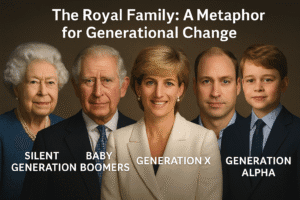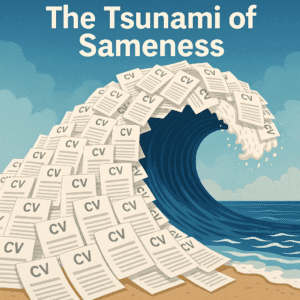Had he been alive today, the Greek philosopher Solon would have made a fortune from TV appearances. His off-beat way of telling it like was, particularly when the occasion didn’t call for it, would have gone down a storm on the Graham Norton Show.
Take this famous one-liner which he delivered at a gathering of the ancient world’s nouveau riche – a kind of Athenian, ‘The Only Place is Ephesus.’ When asked to nominate which of the assembled celebs was likely to be the happiest, Solon – channelling Jose Mourinho – replied,
“Count no man happy until he is dead. Until then, all is luck.”
Even now, two-and-a-half millennia later, you can picture the awkward shuffling of sandals, the twitching of togas.
So who would have thought Solon’s approach to public speaking may be about to make a comeback?
As the new academic year gets underway I’ve been preparing to deliver a programme of welcome talks to our new first years. These talks are notoriously tricky to get right. The students are nervous, time is short, and there’s a lot of information to get across. And then there’s the generational shift which has occurred this year.
It’s incredible to think that the majority of this year’s new undergraduates were born in 2000. By 2019, their generation will have overtaken the Baby Boomers to become the world’s largest single demographic cohort. If their generation is half as dynamic as the Boomers, they’ll transform and redefine everything from politics to the world of work.
But Millennials also face their own unique set of challenges. Despite having double the life expectancy of their early 20th century ancestors, one-in-three of this generation may never be able to afford their own home. Instead, many will live with their parents well into their thirties – a challenging proposition for both parties. By the time they reach the age of thirty-two they will have experienced at least four significant career changes: so training and up-skilling will become the norm.
We also know that during their twenties one-in-four of them will go on to experience some form of mental health issue. It’s this that universities are determined to address – and welcome talks offer a useful forum for starting the conversation.
So this year, I channelled my inner Solon and did something new, bold and original: I told it like it is. Briefly, here’s the key points I delivered to our new first-year undergraduates.
1. No matter how great a time you’re having, you will get homesick. Everyone does. So when you feel it coming on, don’t sit in your room, find someone to have a chat with.
2. University is often fantastic, but there will be times when it won’t be. Enjoy the good times and learn to stick out the bad times.
3. Be sceptical about what people write on social media. In real life, no one is “super excited” all the time.
4. Put the phone down and get involved. Turn up to things. You’ll be amazed at what’s out there.
5. And finally, in the words of another philosopher – this time from Liverpool – who in his own day developed a Solon-like reputation for telling it exactly like it was,
“It will all be OK in the end. If it’s not OK, it’s not the end.”
John Lennon and Solon – now that would be a chat show to remember!







